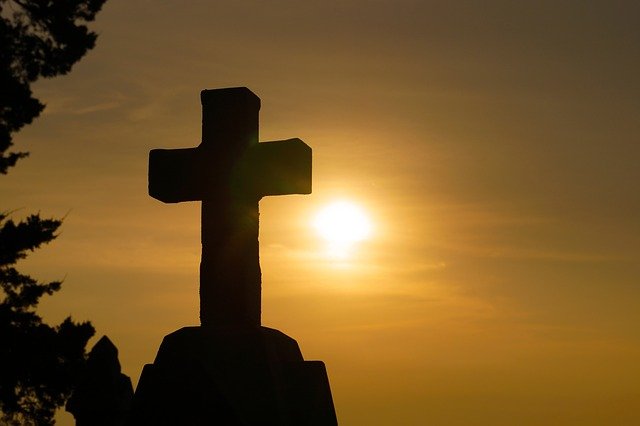In July 2021, the Religious Liberty Commission of the Evangelical Fellowship of India released its Half Yearly Report in which it outlined the various forms of persecution that have taken place against the nation’s Christian minority within the past six months. In total, 145 individual cases were recorded; like in previous years, the states of Madhya Pradesh and Uttar Pradesh saw the most violence with 30 cases and 22 cases, respectively. Other states that reported numerous instances of violence against Christians include Karnataka (14) and Chhattisgarh (13). EFI asserts that “violence against Christians by non-state actors in India stems from an environment of targeted hate. The translation of the hate into violence is sparked by a sense of impunity generated in India’s administrative apparatus.”
The report highlights that the COVID-19 pandemic and subsequent mitigation efforts and lockdowns have likely affected reporting on cases, and that the true number and frequency may indeed be higher. At the same time, Indian authorities have been reluctant to travel to interview victims during the pandemic and courts themselves have been made tremendously less accessible to those seeking justice.
Acts of violence and persecution against Christians in all Indian states include: false accusations and arrests on baseless claims of forced religious conversion (43 cases); verbal threat and harassment (24 cases); physical violence, including assault with iron rods and weapons (21); interruption of church worship (14); vandalism or demolition of churches (8); and murder (3). The three murders recorded were that of Pastor Vinod Kumar, who was killed by Sonu Kashyap in June 2021 with a wooden roof truss for propagating the “love and forgiveness of Christ”; the May 2021 severe assault of Pastor Alok Rajhan by Hindu extremists that caused him to succumb to death from his wounds; and another incident which has not yet been detailed.
Persecution, however, is not limited to the nation’s Christians; concurrently, Muslims have been targeted for mob violence and even legal discrimination. Increasingly more Indian states – including Uttar Pradesh, Odisha, Madhya Pradesh, Chhattisgarh, Gujarat, Himachal Pradesh, Jharkhand, and Uttarakhand – have imposed their own anti-conversion legislations. These laws claim to prevent instances of “love jihad”, an unproven conspiracy theory that Muslim men are marrying Hindu women for the purpose of forcing them to convert to Islam. Not only do such laws contravene a woman’s right to marry whomever she chooses; while they claim to crack down on forced conversions, in reality they prevent a woman from willfully converting religions in case she chooses to do so after an inter-faith marriage.
On 15 July 2021, the Abolish Anti-Conversion Laws and Apostasy Legislations Coalition – composed of Jubilee Campaign, Christian Freedom International, Religious Liberty Partnership, St. Charles Institute, and Set My People Free – held a side event to the first annual International Religious Freedom Summit in D.C. This side event, Free to Choose, featured Ms. Tehmina Arora of ADF International based in New Delhi, who spoke about how such anti-conversion laws have directly caused the arbitrary arrests and false accusations of Indian Muslims and Christians of forcing others to convert. These laws also pose obstacles to legitimate religious conversions, including requiring the individual to notify authorities of their intent to change religions 60 days prior, and requiring permission to be received by local officials before following through with the conversion. Inter-faith marriages themselves are repeatedly called into question despite their authenticity.
Christians and Muslims alike are increasingly suffering under the Modi regime in India. The Evangelical Fellowship of India Religious Liberty Commission releases monthly briefs highlighting the seemingly daily and weekly incidents in which a minority is harassed, intimidated, physically beaten, killed, or arrested for their faith and other peaceful faith-related activities. In early July 2021, the world lamented the death of 84-year-old Indian Catholic priest and human rights activist Stan Swamy, who perished of COVID-19 and other serious health complications while in custody in India; he was initially arrested in October 2020 on baseless charges of being involved in the January 2018 violence in Bhima Koregaon. The United Nations Special Rapporteur on Human Rights Defenders called the death of Father Swamy “a stain on India’s human rights record”; Father Swamy’s untimely and unlawful death, however, is just a single large stain among the thousands of additional blemishes on India’s humanitarian record that are increasingly drawing international condemnation. Now, we must remember Father Swamy’s life and legacy – and his unjust death – as we continue to follow in his footsteps and fight for human rights for all in India.

“We are well aware how prominent intellectuals, lawyers, writers, poets, activists, student leaders are all put in jail because they have expressed their dissent or raised questions about the ruling powers of India. So we are part of the process. As such, in a way, I am happy to be part of the process, because I am not a silent spectator, but I am part of the game. I am ready to pay the price, whatever it be.”
Remembering Father Stan Swamy, 1937 – 2021

